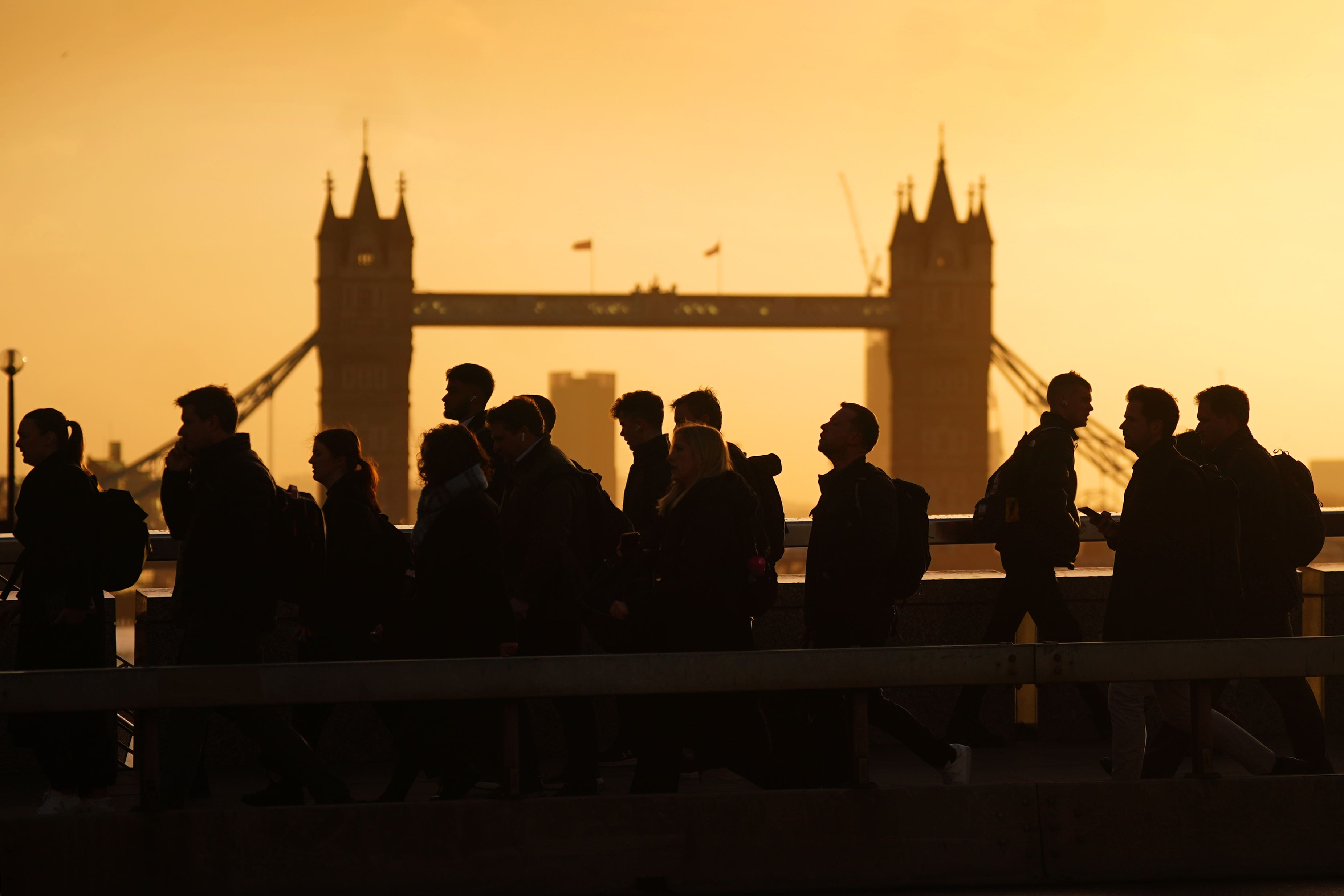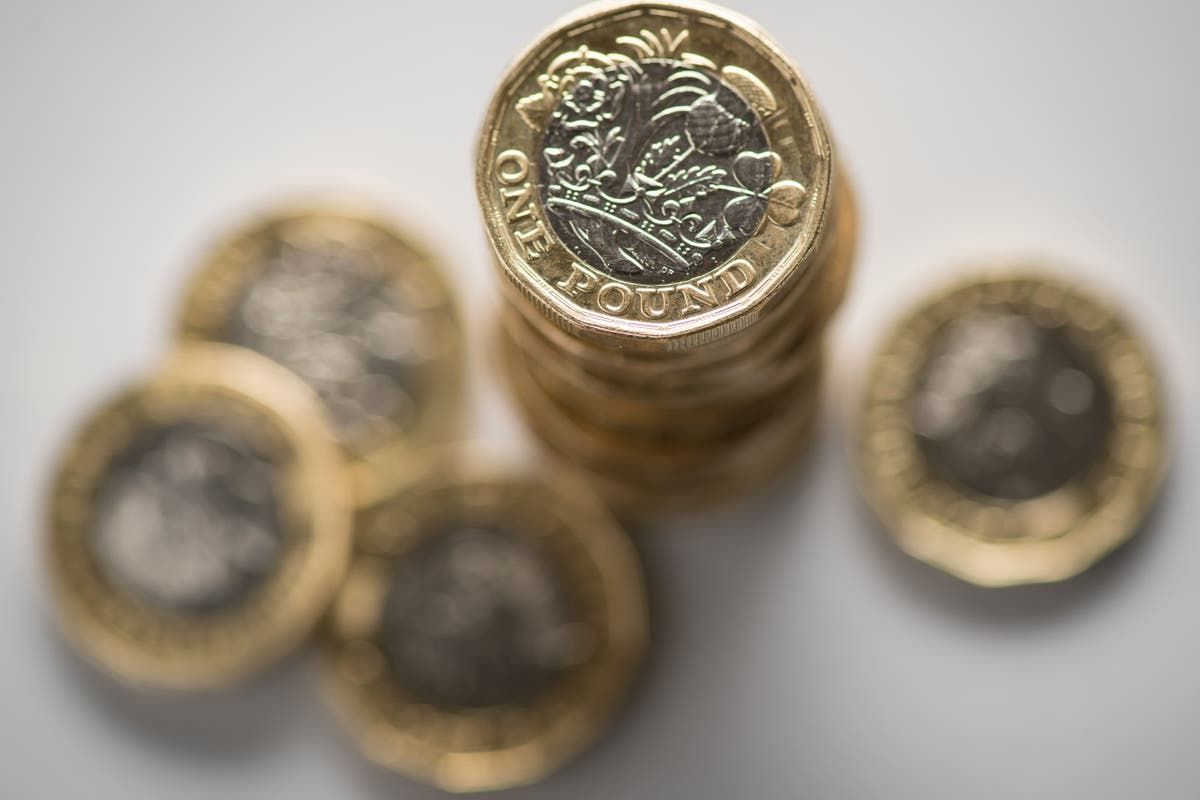Truly support
independent journalism
Our mission is to provide unbiased, fact-based reporting that holds the powerful to account and exposes the truth.
Whether it's $5 or $50, every contribution counts.
Support us in offering journalism without agenda.
The British economy is on track to enjoy the fastest growth of any G7 country in the first half of the year, analysts say.
The Office for National Statistics said gross domestic product (GDP) rose 0.6 percent between April and June, in line with economists' forecasts. This represents growth of 1.3 percent in the first six months of 2024, after Britain fell into recession at the end of 2023.
Although the figures predate the election, they will be a boost for Prime Minister Sir Keir Starmer and Chancellor Rachel Reeves, who have made growth the government's priority, although they warn that “tough decisions” such as some tax rises lie ahead.
But experts said the same level of breakneck growth was unlikely to be sustained in the second half of the year, and warned the figures could convince the Bank of England to delay further interest rate cuts.
No economic growth was recorded in June as weakness in services was offset by improvements in the manufacturing sector, the ONS said.
Growth was also lacking in April, blamed on the impact of wet weather, but the economy registered a 0.4 percent boost in May.

ONS director of economic statistics Liz McKeown said: “The UK economy has grown strongly for two quarters, following the weakness we saw in the second half of last year.
“Growth over the three months was led by the services sector, where scientific research, the IT industry and legal services performed well.
“Growth remained stable in June, with a decline in services, due to a weak month in healthcare, retail and wholesale trade, offset by broad-based growth in the manufacturing sector.”
Ms Reeves said: “The new Government is under no illusions about the scale of the challenge we have inherited after more than a decade of low economic growth and a £22bn black hole in the public finances.
“That is why we have made economic growth our national mission and we are now taking tough decisions to lay the foundations so we can rebuild Britain and make every part of the country better off.”

In the first week after Labour's landslide election victory, Ms Reeves promised to revive the economy by making it the new government's “national mission” to secure the highest sustained growth in the G7.
Ms Reeves said: “Achieving economic growth is our national mission and we do not have a minute to waste.
“That is why I have already taken the urgent steps needed this week to put our economy back on its feet, rebuild Britain and improve the situation in every corner of it. A decade of national renewal has begun and we are only just getting started.”
Simon Pittaway, senior economist at the Resolution Foundation, said that while the UK had recorded the strongest growth of any G7 economy over the past six months, “that's where the good news ends”.
“Britain’s medium-term performance is much less impressive and has been driven by a growing population rather than rising productivity,” he said. “If productivity growth does not pick up, living standards will remain stagnant and Britain will continue to lag behind its peers.”
Suren Thiru of the Institute of Chartered Accountants said the figures confirmed the UK's recovery from recession had “gained momentum” despite strikes and wet weather causing economic activity to stagnate in June.
However, Thiru cautioned that the boost was driven more by inflation declines and events such as Euro 2024 than by a significant improvement in the UK's underlying growth trajectory, and was unlikely to be sustained in the second half of 2024.
He warned that the figures could prompt the Bank of England to delay its next interest rate cut by providing the central bank with “sufficient reassurance on the strength of the economy to delay policy easing.”
Yael Selfin, chief economist at KPMG UK, described the UK economy as having “another spectacular quarter” and said that while growth was expected to slow later this year, overall growth for 2024 could reach 1.1 per cent, which she noted was “well above expectations at the start of the year”.
Jake Finney, an economist at PricewaterhouseCoopers, said: “The latest growth figures provide further evidence that the economy is gradually improving as the new government takes office.”
Lydia Prieg of the New Economics Foundation warned that “small improvements in GDP do not change the fact that the UK economy has been stagnant for a long time due to more than a decade of underinvestment by successive governments.”
“If this government wants to set us on a new path, it cannot rely solely on private investment. This approach has been tried and tested and has left us with crumbling hospitals, sky-high energy bills and a second-rate public transport system,” Prieg said.
“Now we need this government to make smart public investments – in renewable energy to cut energy bills, in green industries and infrastructure to boost growth and wages, and in the NHS and social security to help keep us healthy.”









